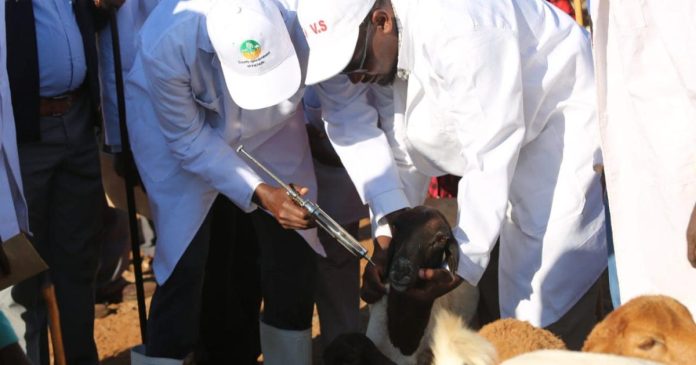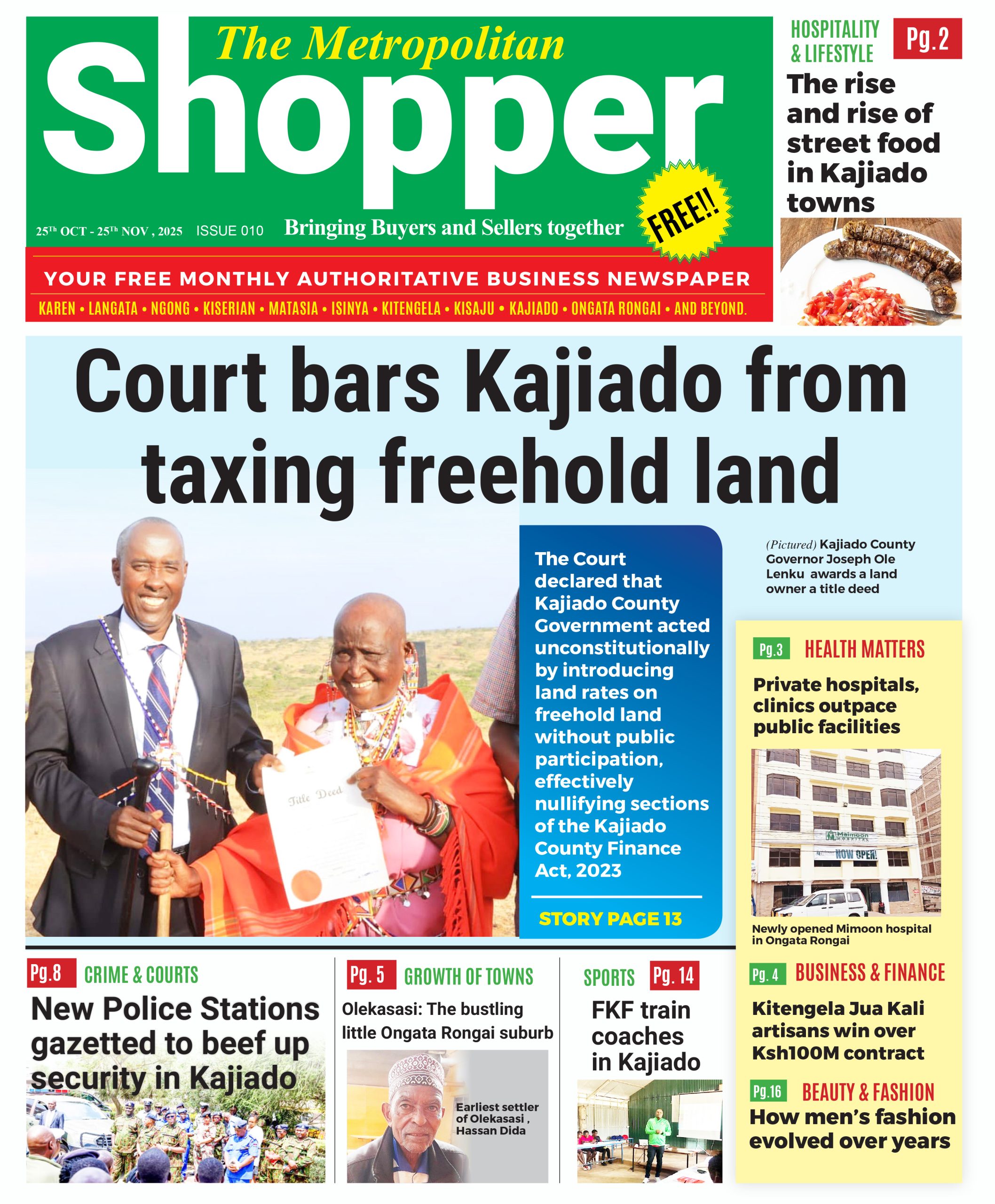Kajiado County has taken a bold step toward digitizing livestock health services by training over 50 veterinary officers and paraprofessionals on the use of an e-voucher vaccination system. The training, held at Isinya Multipurpose Hall, comes ahead of a countywide campaign targeting over 350,000 cattle and 1.5 million sheep and goats starting October 7, 2025.
The initiative is part of a partnership between the county government and the National Agricultural Value Chain Development Project (NAVCDP), aimed at modernizing disease control and improving service delivery.
The digital system, modelled on Kenya’s e-voucher fertiliser subsidy programme, will automate farmer registration, vaccine access, and real-time reporting through the Kenya Agriculture Management Information System (KIAMIS).
NAVCDP County Project Coordinator Philip Koitelel described the rollout as a game-changer for livestock management. “Adopting digital solutions like the e-voucher system allows us to reach more farmers efficiently and ensure that every dose administered is accounted for in real time,” he said. “This innovation strengthens disease control, builds farmer confidence, and enhances the competitiveness of Kajiado’s livestock sector.”
ALSO READ:
Mashuuru launches tree planting and clean-up drive under national schools campaign
The system is designed to eliminate common challenges such as double vaccination, stock mismanagement, and delays in field reporting. It also enables faster decision-making and improves coordination among veterinary teams deployed across the county’s five sub-counties and 25 wards.
Under the cost-sharing model, farmers will pay Sh50 per large animal vaccinated, while the county government will subsidize Sh110 per dose. For small livestock, farmers will contribute Sh3 per animal, with the government covering Sh10 per dose. The campaign will focus on controlling Foot and Mouth Disease (FMD) and Peste des Petits Ruminants (PPR), two major threats to pastoralist livelihoods.
Veterinary teams will operate from designated ward and community vaccination points, supported by Farmer Producer Organisations (FPOs) and Community-Driven Development Committees (CDDCs). Digital registration and real-time monitoring will allow rapid response to logistical challenges and ensure transparency throughout the exercise.
The campaign forms part of Kajiado’s broader strategy to strengthen livestock health systems, boost pastoralist resilience, and position the county for participation in regional and international meat export markets. It also aligns with climate-smart agriculture goals by promoting sustainable livestock production and safeguarding food security.
By Masaki Enock




